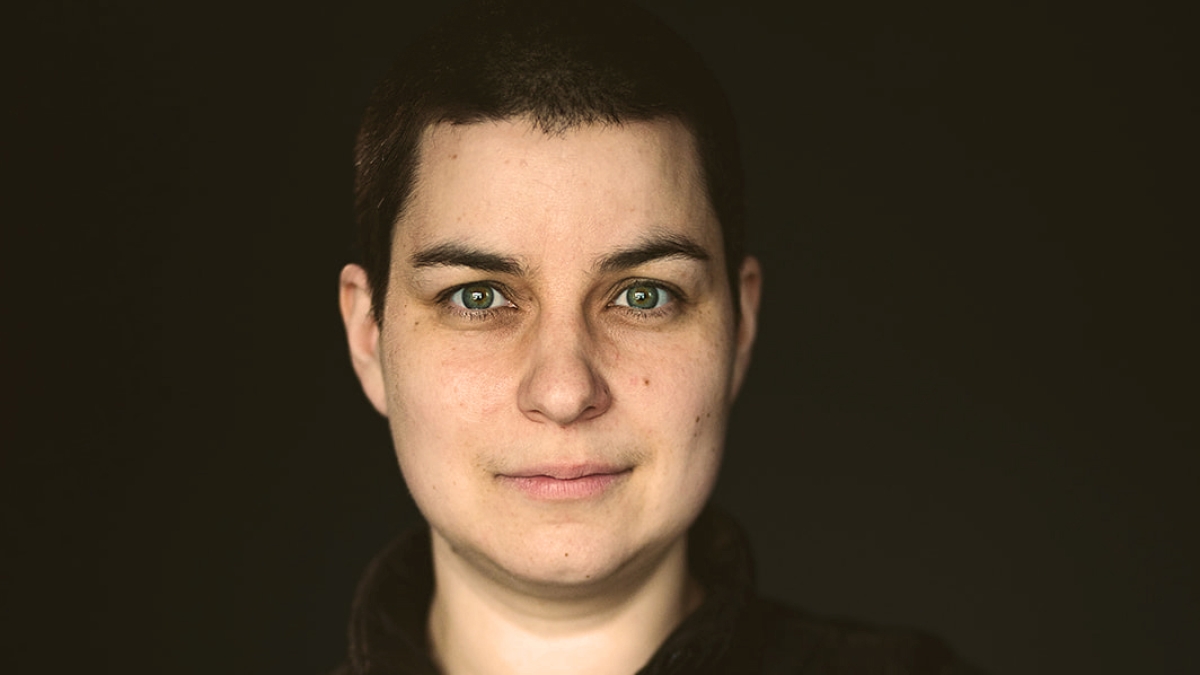‘Ecologies of Justice’ symposium to highlight issues of waste, consumption

Discard studies expert Max Liboiron will deliver the keynote at the "Ecologies of Justice: Wasteland, Wastewater and Human Disposability" symposium. Photo courtesy Max Liboiron
Residents of Arizona are no strangers to the notion of their state’s landscape being barren and harsh, however misguided it may be.
What the idea does do is make way for important conversations that address the impact problems such as waste, disposability, production and consumption have on social, environmental relationships and health, all of which will be a part of the "Ecologies of Justice: Wasteland, Wastewater and Human Disposability" symposium to be held March 23–24 at Arizona State University’s Tempe campus.
“The Sonoran Desert provides an apt environment for these discussions, as the desert is often imagined as a wasteland. It has also been subjected to many kinds of wasting — water, nuclear, plastic and, last but not least, the wasting of life itself,” said Lisa Han, an assistant professor in the Department of English.
The symposium was developed by Mako Fitts Ward, Han and Celina Osuna, and is part of an Institute for Humanities Research Seed Grant. It is co-sponsored by the Institute for Humanities Research, the film and media studies program in the Department of English within The College of Liberal Arts and Sciences, and the Social Transformation Lab.
“The lab is thrilled to co-sponsor the symposium,” said Fitts Ward, director of the Social Transformation Lab and an assistant professor of African American and women and gender studies in the School of Social Transformation. “Using a justice lens to address how environmental crises impact people and the planet will allow participants to move beyond disciplinary boundaries to innovate new ideas, concepts and strategies toward meaningful social impact.”
“The (symposium) centers waste as a vehicle for ecologies of justice because of the way issues of trash, pollution and disposability cross boundaries and borders between humans and nonhumans, lands and waters, as well as local and global scales of research,” Han said.
The two-day event will feature a public keynote presentation by Max Liboiron, a professor in geography, author and leading expert in developing and promoting anticolonial research methods in a wide array of disciplines and spaces.
Liboiron has influenced national policy on plastics and Indigenous research and invented technologies and protocols for community monitoring of plastics. They are the author of “Pollution is Colonialism” and co-author of “Discard Studies: Wasting, Systems, and Power.”
“We are especially looking forward to welcoming Dr. Max Liboiron back to ASU for the keynote presentation, as their work in discard studies, Indigenous studies, and science and technology studies illuminates the dangers of plastic pollution and provides important anti-colonial methods for scientific research that influence how humanists and social scientists can approach as models of justice,” said Osuna, a postdoctoral scholar with the Social Transformation Lab.
Liboiron is the founder of Civic Laboratory for Environmental Action Research (CLEAR), an interdisciplinary natural and social science lab dedicated to the environmental monitoring of plastic pollution. They will discuss the problems of waste and disposability in their research and speak to collaboration within the ASU community and beyond that can work to address these issues.
“This talk draws on case studies from plastic pollution research and activism that use muddy concepts of justice to show three things: a range of concepts of justice at work in activism and science; how the conflation or combination of some forms of justice can cause harm; and to ground a call for fellow researchers to use a more intentional and systematic approach to evoking models of justice in our work,” Liboiron said.
The symposium will also feature workshops and collaborative working sessions led by international scholars in literature, literary arts, design and geography.
The workshops seek to advance interdisciplinary research and demonstrate how disposability and waste coexist to establish a practice of management, surveillance and enclosure that define safety in terms of exclusion and disposability through humanities-oriented approaches that can be applied across academic disciplines.
“As the workshops will consist of students and faculty, we are hopeful that the conversations around waste and human disposability will provide all participants with the opportunity to create a shared language with which to address these issues in their own work,” said Osuna.
The keynote presentation featuring Liboiron will be held at 3:30 p.m. on Thursday, March 23, in the Memorial Union, room 228, on the Tempe campus. The event is free and open to the public.
Visit stl.asu.edu/news-events/events for more information about this event and to RSVP.
More Environment and sustainability

From ASU to the Amazon: Student bridges communities with solar canoe project
While Elizabeth Swanson Andi’s peers were lining up to collect their diplomas at the fall 2018 graduation ceremony at Arizona…

From environmental storytelling to hydroponics, student cohort crafts solutions for a better future
A select group of students from Arizona State University's College of Global Futures, a unit within the Julie Ann…

2 ASU faculty elected as AAAS Fellows
Two outstanding Arizona State University faculty spanning the physical sciences, psychological sciences and science policy have…

